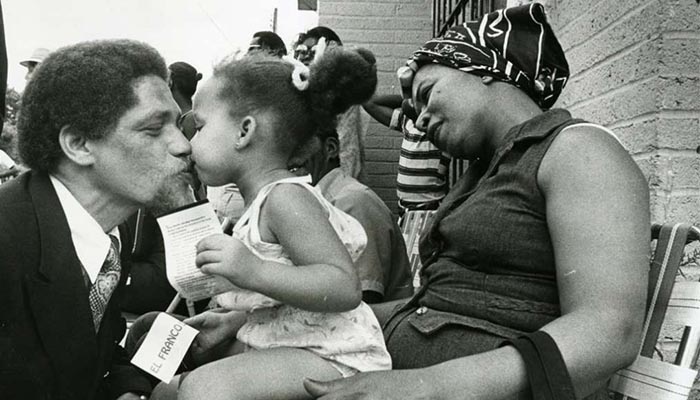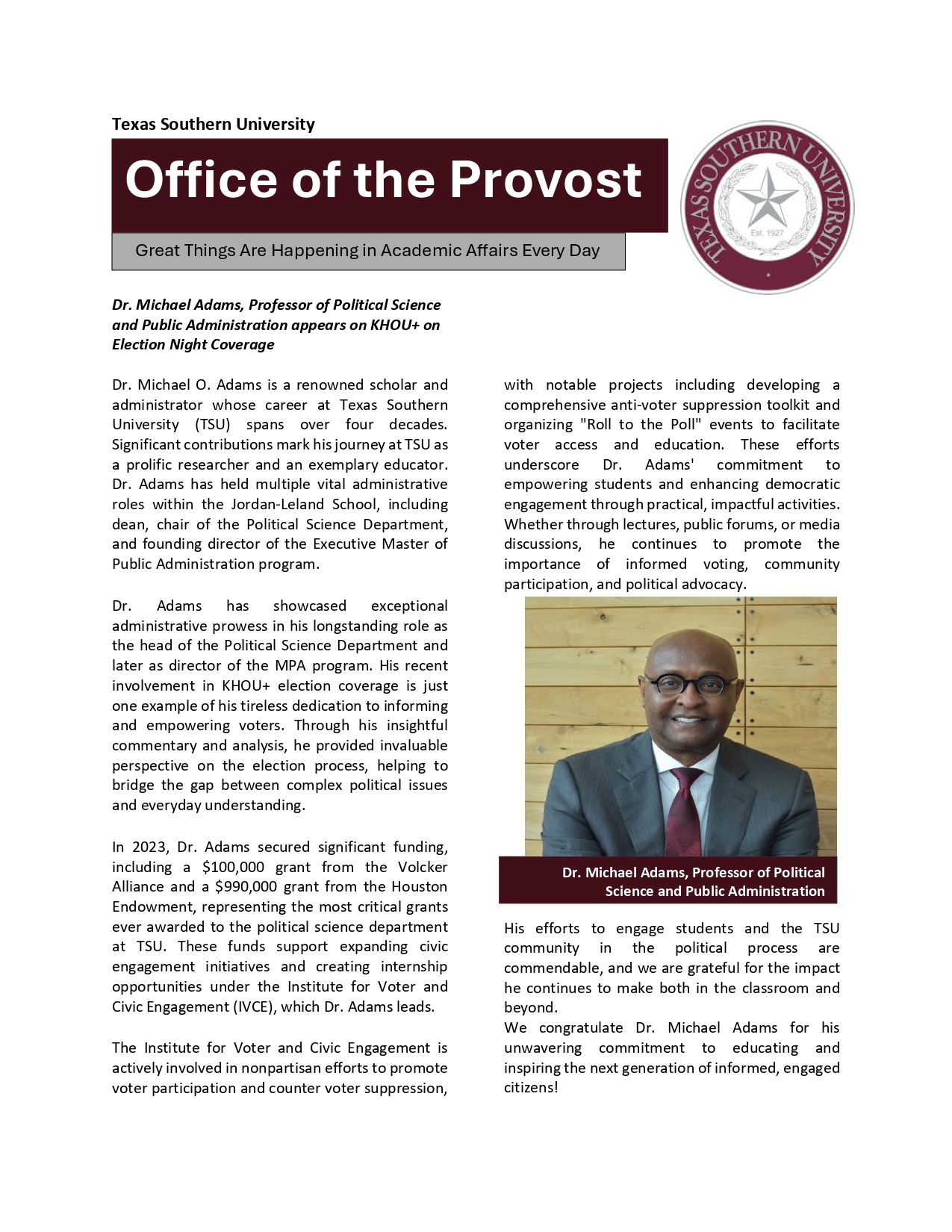The Mickey Leland Center
Mickey Leland
George Thomas “Mickey” Leland was born November 27, 1944, in Lubbock Texas, to Alice and George Thomas Leland, II. Growing up in a predominately African-American and Hispanic neighborhood, Mickey’s first experience with the “public” was in a segregated public school. At an early age, he, along with his mother and brother (William Gaston Leland), took up residence in the Fifth Ward of Houston, Texas. As a student Mickey showed promise early. He ranked in the top 10% of his class when he graduated in 1964 from Phyllis Wheatley High School.Mickey Leland Center on Hunger, Poverty and World Peace

The mission of the Mickey Leland Center on Hunger, Poverty, and World Peace at Texas Southern University is to serve as a state and national resource for information on the problems of global hunger and peace. The center continues the work and adds several key variables that impact our global community health, resilience, and overall security, this focus is in line with the United Nations' focus on global poverty. The research and working groups of the center are formulated in order to realize the center's primary goals.
In 1973, TSU was designated by the Texas state legislature as a "special-purpose institution of higher education for urban programming.” The mission of the Barbara Jordan-Mickey Leland School of Public Affairs (SPA) at Texas Southern University is to serve as an urban-focused community of learning dedicated to educating professionals who will plan and administer environmental healthy and sustainable communities at the local, state, national and international levels of society.
Workshops
The Mickey Leland Center for Environment Justice and Sustainability conducts workshops that will bring together Texas Southern University faculty, staff, students, alumni and community stakeholders from the Houston metropolitan area. The sustainability workshops will focus on ‘real world’ environmental/social problems that require collaborative problem solving that will result in practical solutions. Topics of the workshops will include the following: environmental justice, sustainability across curriculum, energy and environment, sustainability management, sustainable development, environmental policy, transportation equity, smart growth, climate justice, food justice, energy justice, disasters, urban forestry and sustainability, built environment (e.g. parks and green space) and health, and social determinants of health.
